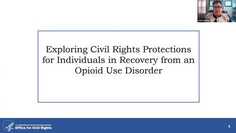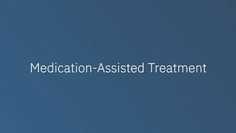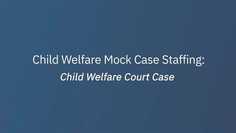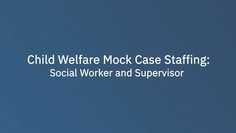Opioid Use Disorder and Civil Rights Video and Webinar Series
The National Center on Substance Abuse and Child Welfare (NCSACW), together with the Office for Civil Rights (OCR), created this training series to inform child welfare and court professionals about federal disability rights protections that apply to certain parents with an opioid—or other substance use—disorder who are also involved with child welfare.
Opioid use disorder is a serious epidemic affecting families and communities across the nation. Discrimination, bias, and stereotypes inhibit access to medication-assisted treatment (MAT); these barriers are possibly illegal and may delay a person’s ability to access critical health and human service programs. Note: federal disability rights laws protect certain people with an opioid—or other substance use—disorder.
Exploring Civil Rights Protections for Individuals in Recovery from an OUD
Part 1: Civil Rights Protections for Individuals with a Disability: The Basics

Date: April 19, 2021
Provides information on protections for qualified individuals with a disability in the child welfare system and federal disability... (Read More)Part 2: Civil Rights Protections for Individuals with an Opioid Use Disorder

Date: April 19, 2021
Examines SUDs and OUDs as a disability while analyzing federal disability rights protections for individuals receiving MAT.... (Read More)Medication-Assisted Treatment and Common Misconceptions

Date: April 19, 2021
This video offers an in-depth look at MAT while addressing common misconceptions about treatment. It highlights strategies that inform... (Read More)Child Welfare Case Staffing: Child Welfare Court Case (Video)

Date: April 19, 2021
National Center on Substance Abuse and Child Welfare (NCSACW) prepared this animated video that simulates a hearing between a judge, a... (Read More)Child Welfare Case Staffing: Social Worker and Supervisor (Video)

Date: April 19, 2021
This animated video simulates a child welfare worker and supervisor staffing a case involving a mother receiving MAT while pregnant. The... (Read More)Note: This video and webinar series is intended to be a training opportunity. The simulated dialogues are hypothetical of a child welfare staffing and a court scenario. For training purposes, the content and conversations in the animated videos, highlight opportunities for improved practice and the need for person-first language. Child welfare systems are complex and vary widely by state. These training resources are not a final agency action and do not legally bind persons or entities outside the federal government. Each state incorporates the requirements of federal legislation into its state child welfare laws. These state laws specify when and how child welfare and dependency courts will be involved in the lives of families. When a child is under court supervision, the dependency court is responsible for monitoring that child’s safety and ensuring that he or she has permanency in the caregiving relationship following the timelines specified in the Adoption and Safe Families Act (ASFA).
